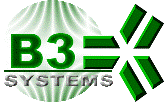
Sensor Models
A wide range of sensor models are available to meet your specific application needs. Whether you need Ethernet communications or just an analog signal of alarm indication, we have just combination you are looking for. All sensors provide key functions such as:
- Dynamic Induction sensing technology
- Reliable & responsive dust readings
- 10,000,000 to 1 dynamic operational range
- Less than 0.1 mg/m3 detection limit
- Advanced QA checks on Atlas and Titan sensors
Titan Sensors
The Titan sensors have the most advanced signal processing of any sensor on the market. The Titan provides the user with access to both the instanteous dust reading but also three (3) channels of rolling average dust readings. The Titan maintains a real-time clock which allows it to track and timestamp events. It also calculates a 1-minute average dust reading which can be used for many PM emission applications.
The Titan sensors come standard with an Ethernet port (RJ45) with Modbus TCP and two (2) RS485 serial ports with Modbus RTU Optional features include an automated electronic drift check (EDC), which allows the sensor to conduct automated zero/span checks and linearity checks. A patented optional feature is the rod isolation check (RIC). The sensor actually measures the amount of resistance of any build-up or contamination between the sensing rod and the process wall. The RIC is a predictive maintenance tool that tell you when it needs to be cleaned before it affects the quality of the dust reading.
Atlas Sensors
Atlas sensors are more of a classic sensor and is comparible to other products currently on the market.
The Atlas sensors come standard with one (1) RS485 serial port with Modbus RTU Optional features include an automated electronic drift check (EDC), which allows the sensor to conduct automated zero/span checks and linearity checks. A patented optional feature is the rod isolation check (RIC). The sensor actaully measures the amount of resistance of any build-up or contamination between the sensing rod and the process wall. The RIC is a predictive maintance tool that tell you when it needs to be cleaned before it affects the quality of the dust reading.
Scout Sensors
The Scout, named after one of the early NASA rockets, provides only an analog output dust signal. Each unit outputs both 0 - 10 vdc and 4 - 20 mA. All QA or maintenance checks on the Scout are manual.
Each Scout sensor can be configured to provide the user with either the instantaneous dust value or a rolling average value. The rolling average period is defined using the on-board dip switches.
